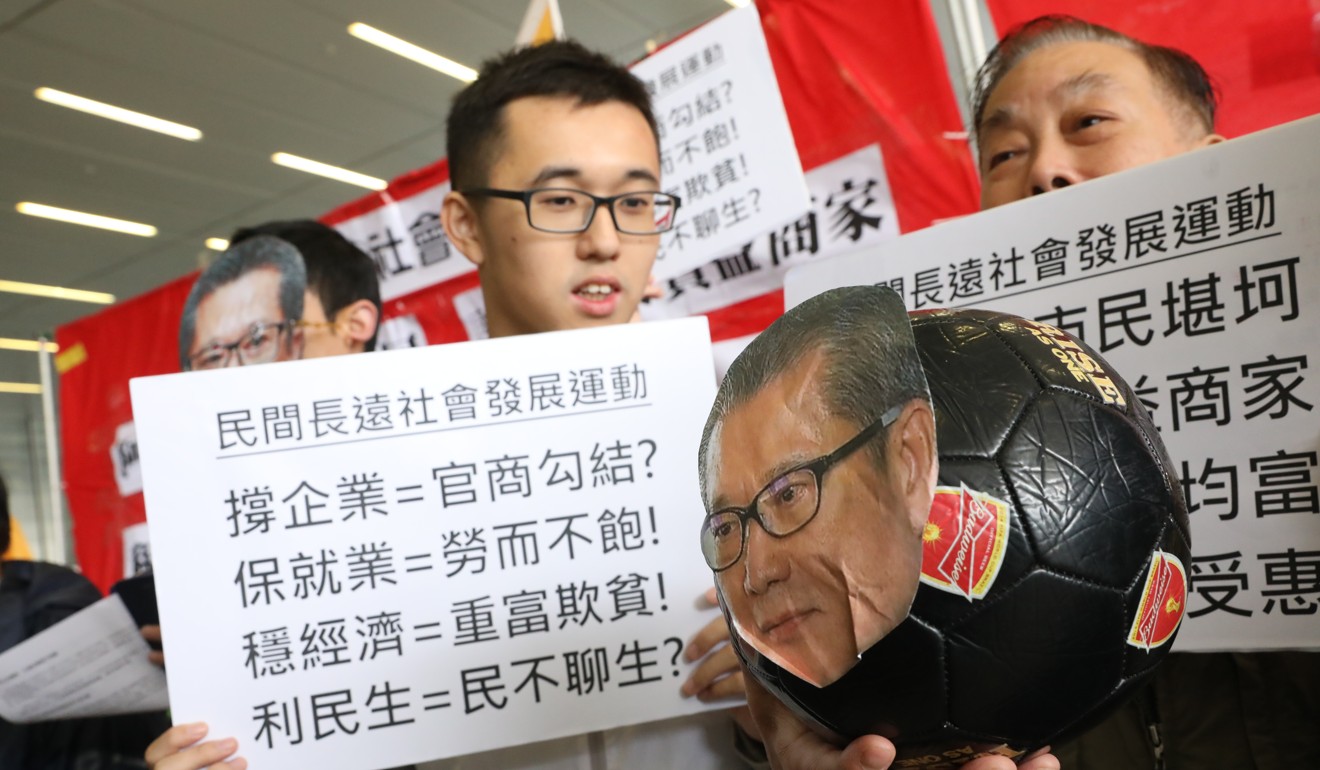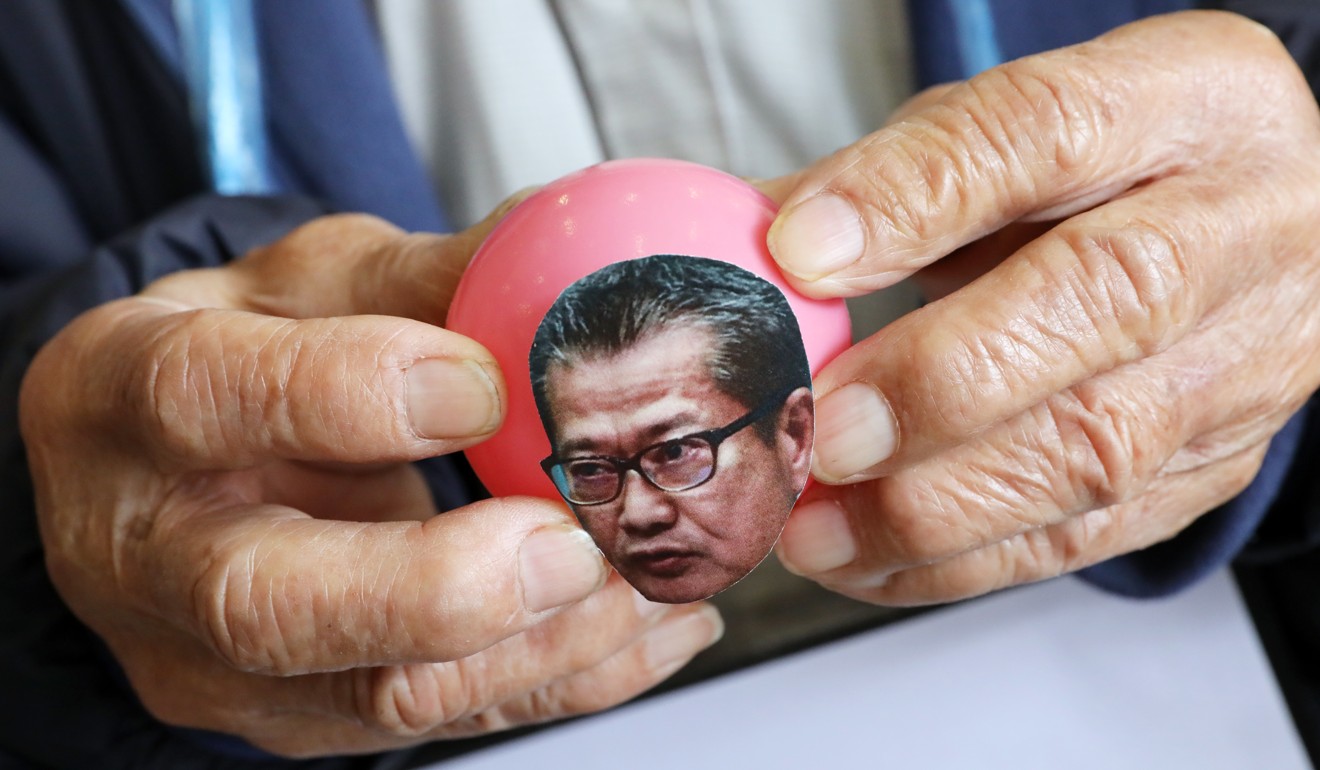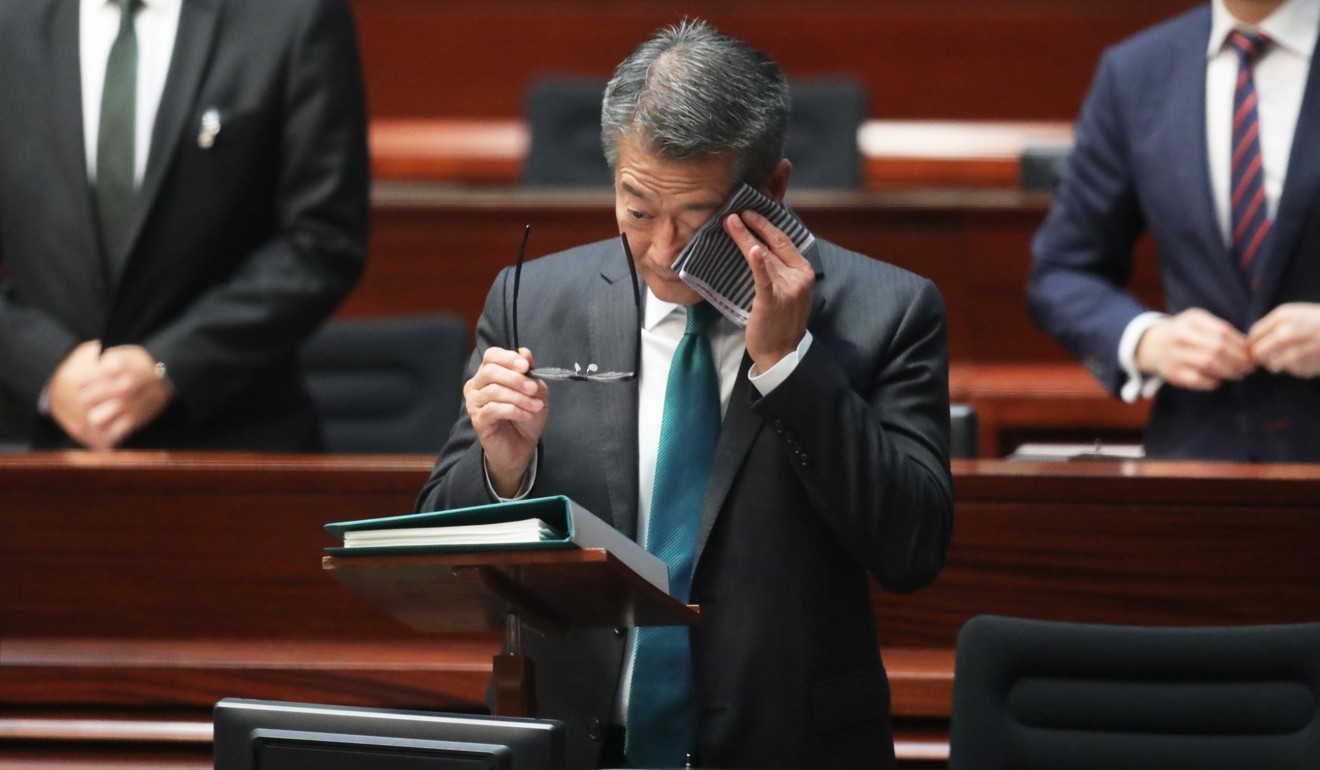
Hong Kong’s finance minister offers HK$150 billion in targeted spending on health, welfare and IT
- Paul Chan lays out strategy to fulfil four ‘S’ objectives of supporting enterprises, safeguarding jobs, stabilising economy and strengthening livelihoods
- While he offers usual tax breaks to salary earners and businesses, along with subsidies for students, budget is light on sweeteners as expected
Hong Kong’s financial secretary unveiled a budget on Wednesday with a HK$150 billion (US$19.2 billion) package offering immediate relief to Hong Kong’s overburdened health and welfare services while helping businesses invest in longer-term safeguards in the face of economic headwinds.
Warning of profound changes in the global political and economic landscape, Paul Chan Mo-po presented a spending blueprint that laid out a strategy to fulfil the four “S” objectives of supporting enterprises, safeguarding jobs, stabilising the economy and strengthening livelihoods.
“Every cloud has a silver lining. Even though we are not out of the woods yet, we have every confidence in our future,” Chan said as he reported a smaller fiscal surplus of HK$58.7 billion, but pledged that overall spending would be increased to 21.6 per cent of the city’s gross domestic product this year, from last year’s 20.2 per cent.
Six key takeaways from the 2019 Hong Kong budget
Wednesday’s budget was more targeted at specific sectors such as small and medium-sized enterprises, public health care, innovation and technology and education.
Every cloud has a silver lining. Even though we are not out of the woods yet, we have every confidence in our future
With the local economy having grown 3 per cent in 2018 – at the lower end of his official forecast of up to 4 per cent – Chan said he anticipated a further tapering, to between 2 and 3 per cent in 2019.
The overall surplus stood at HK$58.7 billion, 57.4 per cent down on the previous year’s HK$138 billion, largely due to lower revenues from the sale of government land and stamp duty against the backdrop of weaker property and stock markets.
Total government expenditure stood at HK$537.7 billion, while revenue was lower than estimated at HK$596.4 billion. But Chan said the city’s reserves would rise to a record HK$1.16 trillion by the end of March.
A novel initiative he proposed was to allocate HK$20 billion for buying 60 commercial properties that would be used to set up more than 130 homes for the elderly and childcare centres.
The medical sector took the lion’s share of expenditure, with HK$10 billion earmarked for setting up a public health care stabilisation fund to cope with unexpected circumstances and HK$5 billion for upgrading and buying medical equipment.

Following up on the government’s promise to help overworked frontline medical staff at swamped public hospitals, Chan set aside HK$700 million to improve their welfare and benefits.
His short-term relief measures will mostly cover workers, smaller businesses, the elderly and the needy.
The middle class will get some relief in the form of a 75 per cent salaries tax cut capped at HK$20,000 – less than last year’s HK$30,000.
An estimated 145,000 companies are also expected to benefit from a 75 per cent profits tax cut capped at HK$20,000.
“With uncertainties prevailing on the global political and economic scene, we need to be well prepared at all times,” Chan said.
Longer-term measures to support enterprises include an extra HK$1 billion for a government fund that subsidises companies seeking to develop their brands and upgrade their products in overseas markets.

“Hong Kong should endeavour to diversify its economy,” Chan said. “Apart from strengthening the industries currently enjoying competitive edges, we should identify new areas of growth by vigorously developing emerging industries.”
A stronger push for innovation and technological development includes HK$16 billion for publicly funded universities to renovate campus facilities, especially for research and development purposes.
Extra space for technology development will be provided through expanding the existing Cyberport tech hub in Pok Fu Lam.
Wrapping up his speech with a rallying call, Chan said: “Hard-working and flexible, Hong Kong people have weathered tough times and grown tougher. With confidence, hope and concerted efforts, we will definitely be able to see the sunshine through the clouds.”
Politicians from across the political spectrum criticised the budget over the shortage of sweeteners, complaining that the grass roots had been left out.
Pro-business parties said the government could have done much more to stimulate the economy and provide more help for SMEs by putting the fiscal surplus to better use.
“The HK$58.7 billion surplus this year is not a small figure at all,” Felix Chung Kwok-pan of the Liberal Party said. “We are a bit disappointed as the finance chief could have done much more.”

New People’s Party chairwoman and executive councillor Regina Ip Lau Suk-yee found the budget to be too conservative and lacking new ideas.
One of the city’s largest NGOs, the Society for Community Organisation, welcomed the initiative to buy commercial properties for welfare facilities as creative thinking, but urged the government to ramp up resources for the medical sector to 20 per cent of the city’s total expenditure from 18.3 per cent.
The Hong Kong General Chamber of Commerce said boosting investment in IT development was a wise move, as it would be key to greater integration with Macau and 10 cities in Guangdong to form the tech-driven economic powerhouse dubbed the “Greater Bay Area”.
However, the chamber noted the government had failed to address the need to cut red tape and review regulations to boost Hong Kong’s competitiveness and efficiency.
Stanley Ho, co-chairman of the Association of Chartered Certified Accountants, hailed the spending blueprint as one that sought progress while ensuring stability in the face of an economic downturn.
“Although Hong Kong’s fiscal health is still stable, given the slowing economy and rising government spending, we urge the administration to consider more sustainable and effective measures on improving the competitiveness of the local business environment, ensuring bright economic prospects and a better standard of living in the long run,” he said.
Additional reporting by Kimmy Chung

